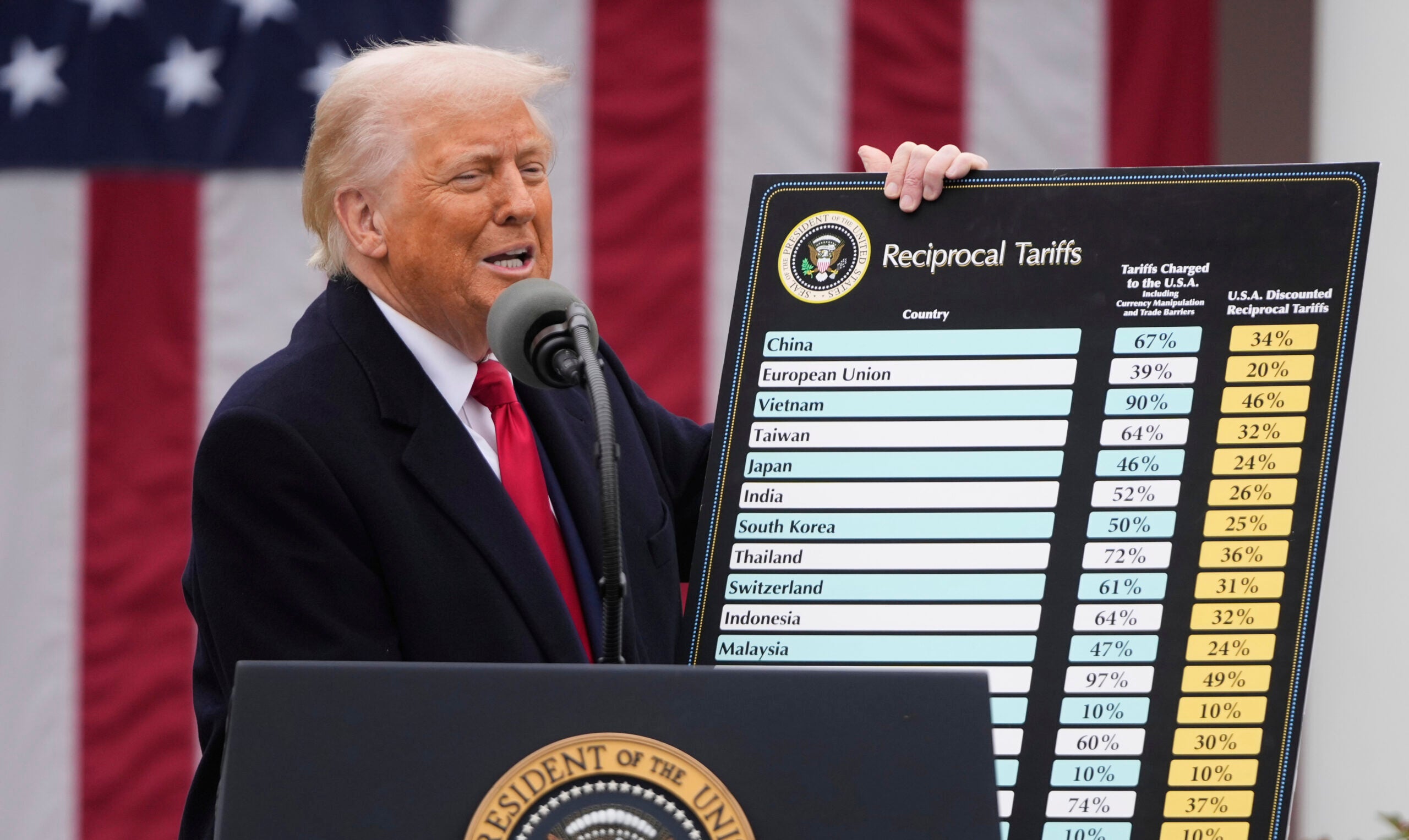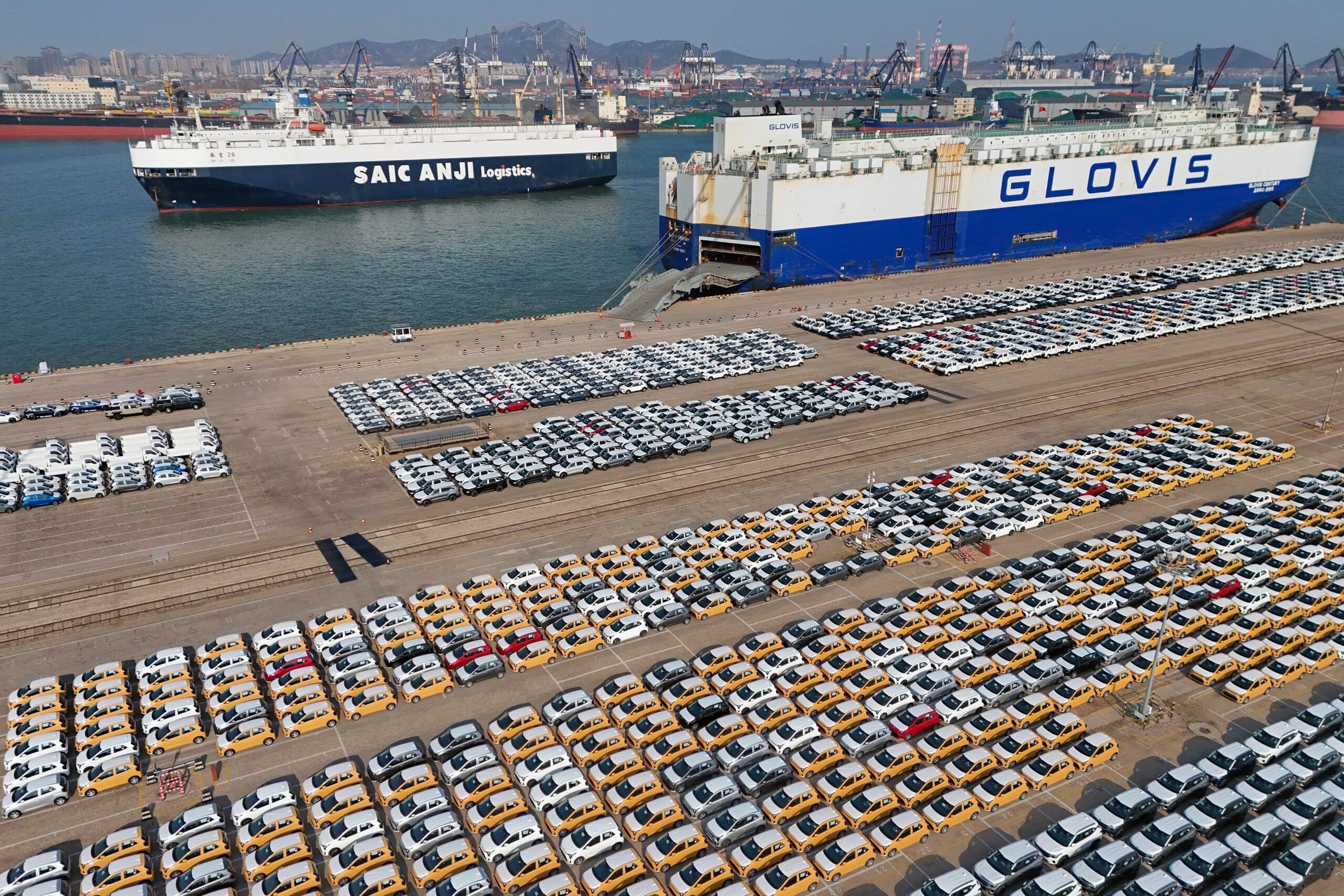New tariffs on Mexican and Canadian imports were expected to begin Tuesday, but were delayed one month. The delay comes after the proposal created uncertainty for Wisconsin businesses and raised concerns about possible price hikes.
Over the weekend, President Donald Trump announced 25 percent tariffs on goods from Mexico and Canada would begin Tuesday. At the time, he said the orders were meant to slow illegal immigration and stop the flow of fentanyl into the United States.
Trump met with the leaders of Mexico and Canada on Monday and delayed the implementation of those tariffs, after both countries pledged to make border security investments. NPR reports Trump will also meet with Chinese leaders regarding a 10 percent tariff on goods from China that Trump approved over the weekend.
Stay informed on the latest news
Sign up for WPR’s email newsletter.
If tariffs are implemented, Steven Deller, a professor of agricultural and applied economics at the University of Wisconsin-Madison, said he expects they will lead to higher prices. But how much higher will vary based on demand for products.
“In general, producers are going to try to pass as much of that tariff on to the consumer as they possibly can, which means they’re going to be looking at higher prices across the board,” he said. “That’s not just consumers, but businesses.”
The Tax Foundation think tank found Trump’s tariffs on Mexico, Canada and China would shrink economic output and increase taxes. The Tax Foundation says the duties amount to an average tax of more than $800 per household.
The stock market fell Monday morning due to uncertainty around Trump’s tariffs.
Wisconsin’s Republican U.S. Sen. Ron Johnson told Newsmax on Monday that he shared the market’s concern about the tariffs.
“It’s gonna hurt Americans, American companies, American exporters. It’ll hurt American consumers long-term,” said Johnson, who has been a vocal supporter of most of Trump’s early second term actions.
Ahead of the tariff announcement, Wisconsin businesses largely supported tariffs on China, but were somewhat split on tariffs toward North American trade partners.
Eighty-six percent supported 10 percent tariffs on China, according to a survey of 153 employers by Wisconsin Manufacturers & Commerce, the state’s largest business group. Only 44 percent supported a general 25 percent tariff on Mexico and Canada. When asked about using tariffs as a negotiating tool to slow illegal immigration, 73 percent of Wisconsin businesses were in support, the survey showed.
“Wisconsin is a manufacturing and agricultural state,” WMC President Kurt Bauer said in a Jan. 27 statement. “We make, grow and process things and we want to sell them around the world. But business leaders are saying that we need our trading partners to play by the rules.”

Trump tariffs could hurt Wisconsin exports
But a November report from the nonprofit Badger Institute warned a trade war, triggered by Trump’s tariffs, would pose risks to Wisconsin’s manufacturing sector, making the state “especially vulnerable.”
Canada is Wisconsin’s largest trade partner, purchasing $8.5 billion in Wisconsin exports as of 2023, followed by Mexico at $4.3 billion and China at $1.5 billion, according to state data. Wisconsin’s top exported products were industrial machinery, electrical machinery and medical and scientific instruments.
Beyond manufacturing, the state ranks 13th for agricultural exports and shipped $4.7 billion in agricultural exports in 2022, according to state data. Dairy products, soybeans and corn were the state’s top agricultural exports that year.
Deller said retaliatory tariffs could upend Wisconsin’s manufacturing and agricultural sectors, which both rely on exports. Canada and Mexico both announced plans to retaliate with their own tariffs before reaching a deal with the U.S.
“When you start to get countries into these trade wars, everybody loses,” Deller said. “It will negatively affect Wisconsin.”
“Once countries start saying, ‘We’re not going to buy from you, we’re going to buy from somebody else,’ they start to build relationships with our competitors,” he added. “As those relationships build with those competitors, why should they come back?”
Wisconsin Farmers Union President Darin Von Ruden said the first Trump administration’s tariffs led to a fall in corn and soybeans prices that required government subsidies to keep farmers afloat.
He said farmers are worried agricultural commodities prices will fall again as a result of the tariffs and subsequent retaliation. He said Canada is the leading importer of Wisconsin dairy products, so he expects those will be more affected than in the first Trump term.
“The markets that we had in some of the foreign countries, we still have not gained those back to the states yet,” Von Ruden said. “Looking at Canada, especially on the dairy side, if we lose those markets, it could mean that 15 to 20 percent of our milk supply could be sitting here in the states.”

Wisconsin grocers brace for tariffs
Grocery stores in Wisconsin were also bracing for tariffs Monday. Mike Semmann, president of the Wisconsin Grocers Association, called it a “fluid” situation saying many store owners were in contact with their suppliers as they wait for the results of negotiations.
During the winter months especially, he said Wisconsin grocers rely heavily on foreign supply chains to ensure they have the products consumers expect to see year round.
“Retailers are doing their best to prepare. They’re absorbing information from their suppliers,” Semmann said. “People are trying to figure out how to work through the supply chain to make sure that customers have the products they need.”
Mexico and Canada play a major role in keeping stores stocked across the country. According to CNN, Mexico is the leading supplier of fruits and vegetables in the United States while Canada is the leader in grain, livestock and meat products.
Even with a pause on North American tariffs, Deller said Wisconsin businesses are likely to face lasting uncertainty around international trade over the next four years.
“Businesses and consumers hate uncertainty,” he said. “If they don’t know what’s going on, they will hunker down.”
Wisconsin Public Radio, © Copyright 2025, Board of Regents of the University of Wisconsin System and Wisconsin Educational Communications Board.





